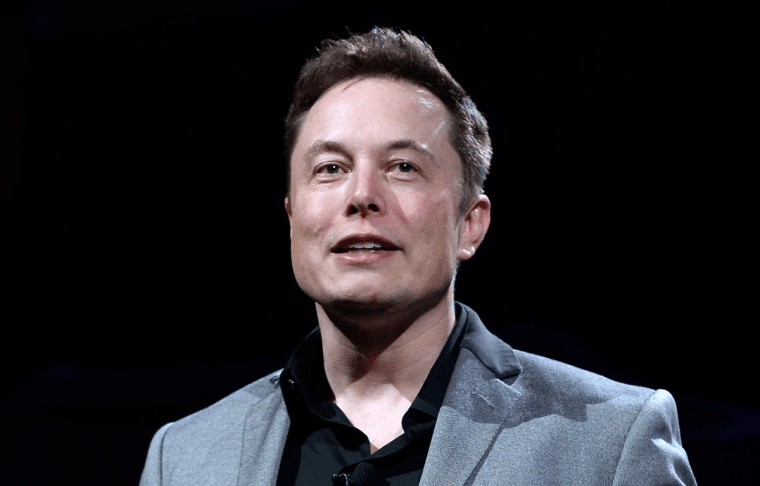
Elon Musk, the entrepreneur behind Tesla and SpaceX, has launched his artificial intelligence (AI) firm xAI with a team of top experts in the field.
The new initiative, led by Musk himself, aims to “understand the true nature of the universe,” according to its website.
Announcing formation of @xAI to understand reality
— Elon Musk (@elonmusk) July 12, 2023
Musk was previously involved in the creation of OpenAI, a prominent AI startup that developed the popular ChatGPT chatbot. He stepped down from the company’s board in 2018 due to a conflict of interest with his other businesses.
However, he has since been critical of OpenAI, particularly after it established a for-profit arm, which he believes is “effectively controlled by Microsoft.” Microsoft has invested $13 billion into OpenAI.
Despite his involvement in AI, Musk has expressed concerns about the technology.
Earlier this year, he was part of a group of researchers and industry leaders who signed an open letter that called for a six-month pause in developing systems more powerful than GPT-4, citing potential risks to society.
The letter said that there is a “level of planning and management” that is “not happening,” and that instead, in recent months, unnamed “AI labs” have been “locked in an out-of-control race to develop and deploy ever more powerful digital minds that no one – not even their creators – can understand, predict, or reliably control.”
Details of Musk’s xAI first came out in April after The Verge obtained a state filing that showed the company was incorporated in Nevada.
The filing also showed that xAI had authorized the sale of 100 million shares for the privately held company.
Musk’s xAI Brings Top Engineers From Google and Microsoft
The xAI team includes several former Google and Microsoft employees, as well as two academics from the University of Toronto.
Jimmy Ba, an assistant professor who studied under AI pioneer Geoffrey Hinton, is one of the notable hires. He co-authored a highly influential paper on optimization in deep learning, known as the “Adam” paper, which has received over 95,460 citations.
Igor Babuschkin, a former engineer at Google’s DeepMind; Tony Wu, who worked at Google; Christian Szegedy, who was also a research scientist at Google; and Greg Yang, who was previously at Microsoft, are among the more notable engineers at xAI.
Tesla boss Elon Musk has announced the formation of an artificial intelligence startup.
The new company is called xAI, and includes several engineers that have worked at companies like OpenAI and Google.#ElonMuskAI #ElonMuskStartup #XAI #ArtificialIntelligence #AI #OpenAI pic.twitter.com/4gn7dIHiaY
— The USA Leaders (@leaders_usa) July 13, 2023
Although Musk has been critical of San Francisco, the xAI website states that the company is actively recruiting engineers and researchers in the Bay Area, where most AI development is concentrated.
Musk and his family office also registered a business called X.AI in March, indicating his plans to venture into the AI startup space.
Furthermore, the xAI website mentions that the company is advised by Dan Hendrycks, the director of the Center for AI Safety, which has raised concerns about the risks associated with developing AI too quickly.
As reported, the Center for Artificial Intelligence has asked the FTC in a complaint to halt the commercial releases of GPT-4, citing privacy and public safety concerns.
In the complaint, the group claimed that GPT-4 is “biased, deceptive, and a risk to privacy and public safety.” It also said that the tool has caused distress among some users with its quick and human-like responses to queries.
Musk currently oversees six companies, including xAI, and has a vision of integrating AI into various aspects of his businesses.
Tesla, for instance, focuses on AI, robotics, and automation in its products and services. The company’s website invites people to contribute to the future of AI, offering opportunities to work on projects like the “Tesla Bot” and AI interface chips for their automated driving software.
Musk has a history of moving engineers between his companies, and xAI will work closely with other businesses under Musk’s purview, such as Tesla, SpaceX, and Twitter.
Researchers Create AI Models to Bridge Political Divisions
While Musk has flagged his concerns about political bias in language models, others are leveraging AI to build bridges across political divisions rather than driving specific viewpoints.
Earlier this year, David Rozado, a data scientist based in New Zealand, created an AI model called RightWingGPT on the back of observing ChatGPT’s political bias.
RightWingGPT promotes conservative views, supporting gun ownership while opposing taxes.
Rozado used a language model called Davinci GPT-3, which is similar to ChatGPT but admittedly less powerful, to fine-tune it by adding more text.
He has since announced plans to create additional models, including LeftWingGPT, which will reflect more liberal perspectives, and DepolarizingGPT, which aims to take a “depolarizing” political position.
Rozado, together with the Institute for Cultural Evolution, a centrist think tank, intends to publish all three models online sometime in the summertime, along with the text sources that he used to train the algorithms.
This is important as AI models retain subtle biases from the material that these models consume, displaying their limitations towards objective facts.
Most crucially, they are not taught to recognize what is and is not objective truth. Therefore, they can create false information.